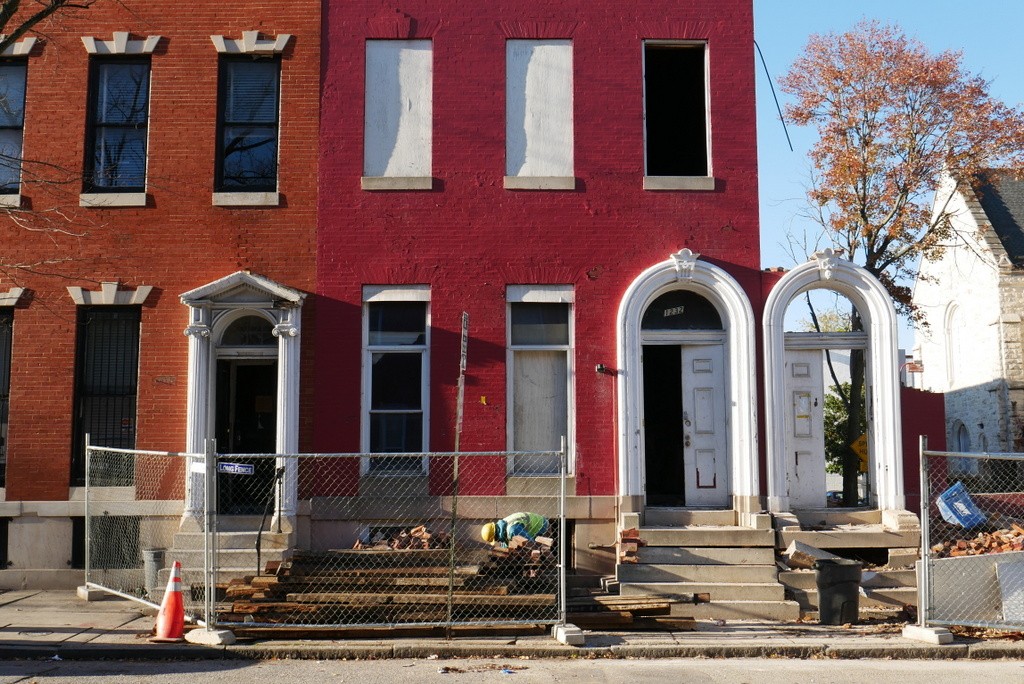Built in 1868, the three-story brick rowhouse at 1232 Druid Hill Avenue is an important reminder of the city’s rapid growth after the Civil War and the African American history of the Upton neighborhood. Please come to the public CHAP hearing on Tuesday, January 12 to support listing 1232 Druid Hill Avenue as a local landmark and protect the building from demolition. If you are unable to attend, you can share your support for the nomination by email with Eric Holcomb, Executive Director, CHAP at eric.holcomb@baltimorecity.gov.
Continued threats to Civil Rights heritage in West Baltimore neighborhoods highlight the urgent need to preserve 1232 Druid Hill Avenue. In September 2015, Bethel A.M.E. Church received permits for limited interior demolition at 1232 Druid Hill Avenue (acquired by the church in 1981) and the neighboring 1234 Druid Hill Avenue. Regrettably, the work soon led to a roof collapse at 1234 Druid Hill Avenue and the church received a permit to demolish both buildings—despite the fact that 1232 Druid Hill Avenue remained structurally sound. As the contractor tore down the Freedom House in early November, they continued to gut 1232 Druid Hill Avenue with an clear plan to tear the building down shortly.
Fortunately, the Baltimore Commission for Historical and Architectural Preservation (CHAP) stepped up and placed the building on their potential landmark list. The potential landmark list is a new tool for preservation in Baltimore created by the revised CHAP ordinance and replacing the controversial “special list” designation. As the Baltimore Brew reported in November, CHAP posted a notice at 1232 Druid Hill Avenue and scheduled a hearing for January 12 to hear testimony from the owner and members of the public and decide whether to add the building to CHAP’s landmark list.
1232 Druid Hill Avenue tells the story of Baltimore’s changing neighborhoods through the stories of the many families who have called this house home. We call this the King/Briscoe House to recognize two particularly important residents at 1232 Druid Hill Avenue: local printer George W. King (who lived there from 1883 to 1898) and African American wagon driver Abraham Briscoe (who lived there with his family from 1899 to 1908). You can learn more about the history of 1232 Druid Hill Avenue with our draft landmark designation report.
If you plan to testify to support the designation next week, we urge you to read our tips for effective public testimony. The hearing starts at 1:00pm. This is the third item on the agenda so the staff presentation is likely to begin around 1:30pm. To testify, you need to sign up at the front desk for the planning department located just outside the Planning Department hearing room. Please feel free to contact us with any questions or comments or send me an email at pousson@baltimoreheritage.org.

